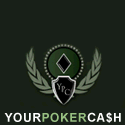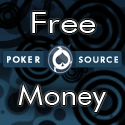 Most players eventually realize that it's fun and fairly easy to play at multiple online tables at one time. Early in my career, I played as many as eight games at once on a daily basis. Here are some tips and instructions for playing multiple games:
Most players eventually realize that it's fun and fairly easy to play at multiple online tables at one time. Early in my career, I played as many as eight games at once on a daily basis. Here are some tips and instructions for playing multiple games:1. Increase the resolution on your monitor. You can do this by right clicking on the desktop, then clicking on Properties, then clicking on Settings. You can then grab the arrow in the Screen Resolution area and move it to a smaller resolution.
If possible, use the 1,600 x 1,200 setting to get up to four games on one screen without overlap. In order to maximize your screen area, make sure your video card and monitor support higher resolution settings.
2. Once you get into playing more than one game, the best way for you to keep up with the action is to look for hands you can fold automatically. Use advance actions. That will help you pay more attention to the game you have a real hand in.
3. Play the same game at every table. It will help you avoid mistakes in reading and playing your hand, and you'll find it easier to get into a good rhythm.
4. Most importantly: Track who has raised the pot. Make sure you make a mental note of this since it is the key to how you will play your hand later. It sounds simple, but it is easy to get in a pot and not recall who raised when you're playing more than one game.
5. Make sure you take some breaks. When I used to play eight games, I was an animal. I would run to the bathroom and every screen would be beeping at me. Take a few breaks. The games will still be there when you get back.
Playing multiple games is a lot of fun and I hope to see you at the table. Or tables.
Free $100 Bankroll at Full Tilt Poker






 Last week I talked about not adjusting for tournament play, answered three specific tournament questions, and stressed that there is little difference between tournament strategy and ring game strategy. This week, I would like to expand on that by answering a fourth question, and address the two situations where it's right to deviate from simply playing your best game.
Last week I talked about not adjusting for tournament play, answered three specific tournament questions, and stressed that there is little difference between tournament strategy and ring game strategy. This week, I would like to expand on that by answering a fourth question, and address the two situations where it's right to deviate from simply playing your best game.

 Everyone makes mistakes. The thing is, a good player will learn from them while a bad player will make the same mistake over and over again. And poker players that can exploit these mistakes will win.
Everyone makes mistakes. The thing is, a good player will learn from them while a bad player will make the same mistake over and over again. And poker players that can exploit these mistakes will win.
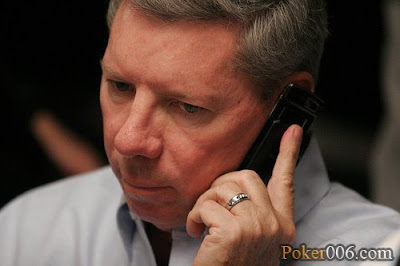
 I'm at Foxwoods playing the $2,000 No Limit Hold 'em event. We all started with $3,000 and now I've got $15,000. At my table is Richard Tatalovitch, a player whom I've competed against many times.
I'm at Foxwoods playing the $2,000 No Limit Hold 'em event. We all started with $3,000 and now I've got $15,000. At my table is Richard Tatalovitch, a player whom I've competed against many times.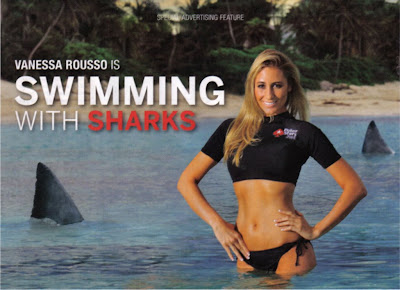




















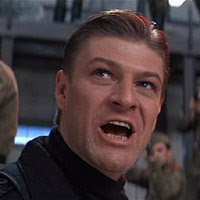 Ya, so I finally got my own domain; Poker006.com. I've been looking in Domain auctions with no luck and every domain I thought of was already taken. Than I asked my friend and he said poker006 and we were surprised it wasn't taken. The number 006 is from "Agent 006"(picture on the right) from the James Bond Movie. But he is a villain and I think he dies so not that great for a theme lol.
Ya, so I finally got my own domain; Poker006.com. I've been looking in Domain auctions with no luck and every domain I thought of was already taken. Than I asked my friend and he said poker006 and we were surprised it wasn't taken. The number 006 is from "Agent 006"(picture on the right) from the James Bond Movie. But he is a villain and I think he dies so not that great for a theme lol. 

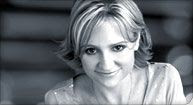 Being a winning player isn't only about playing good cards - it's also about making good decisions. And there is one important decision you face every time you sit down in a cash game: Should I quit, or should I keep playing?
Being a winning player isn't only about playing good cards - it's also about making good decisions. And there is one important decision you face every time you sit down in a cash game: Should I quit, or should I keep playing?










